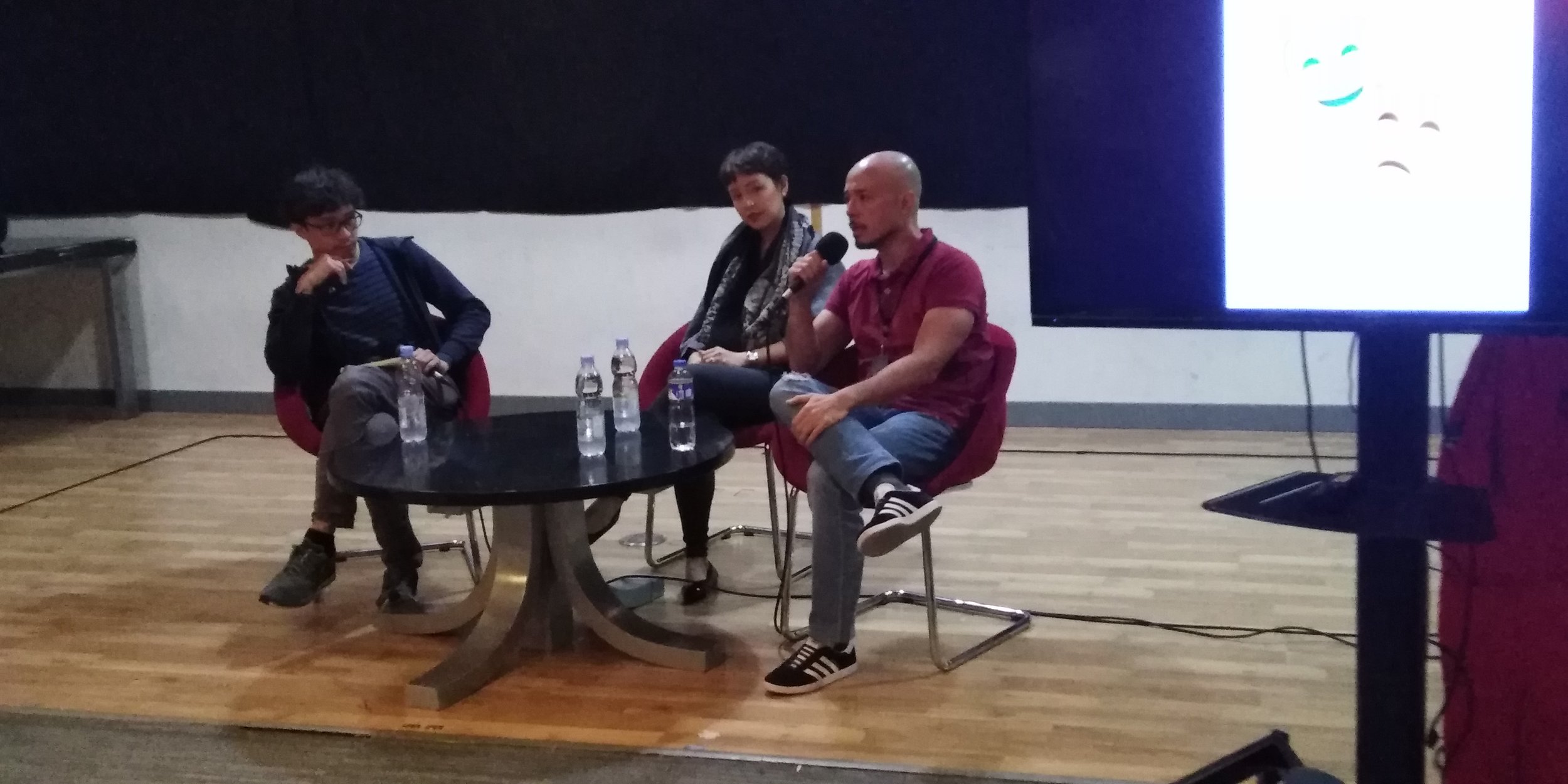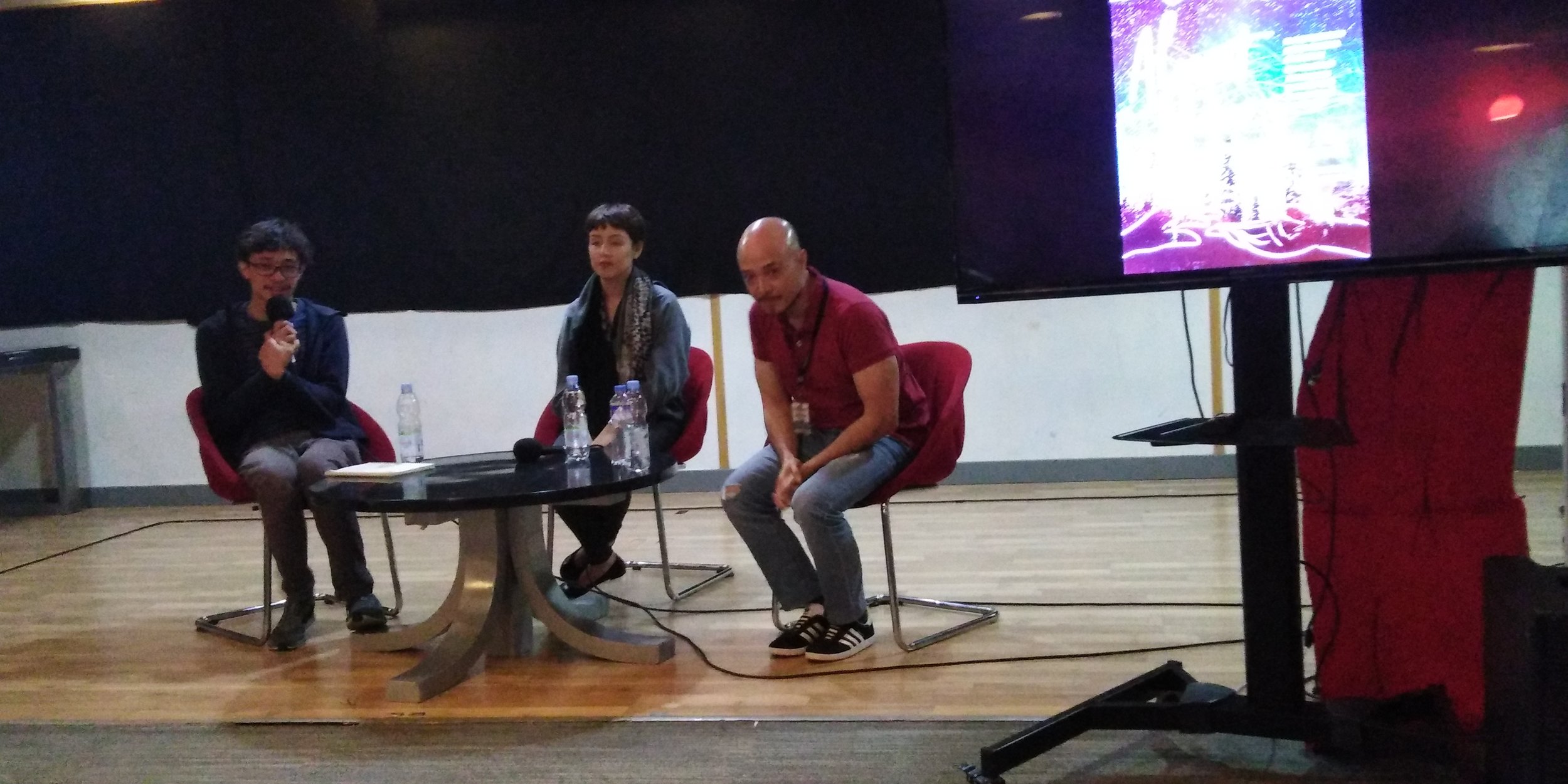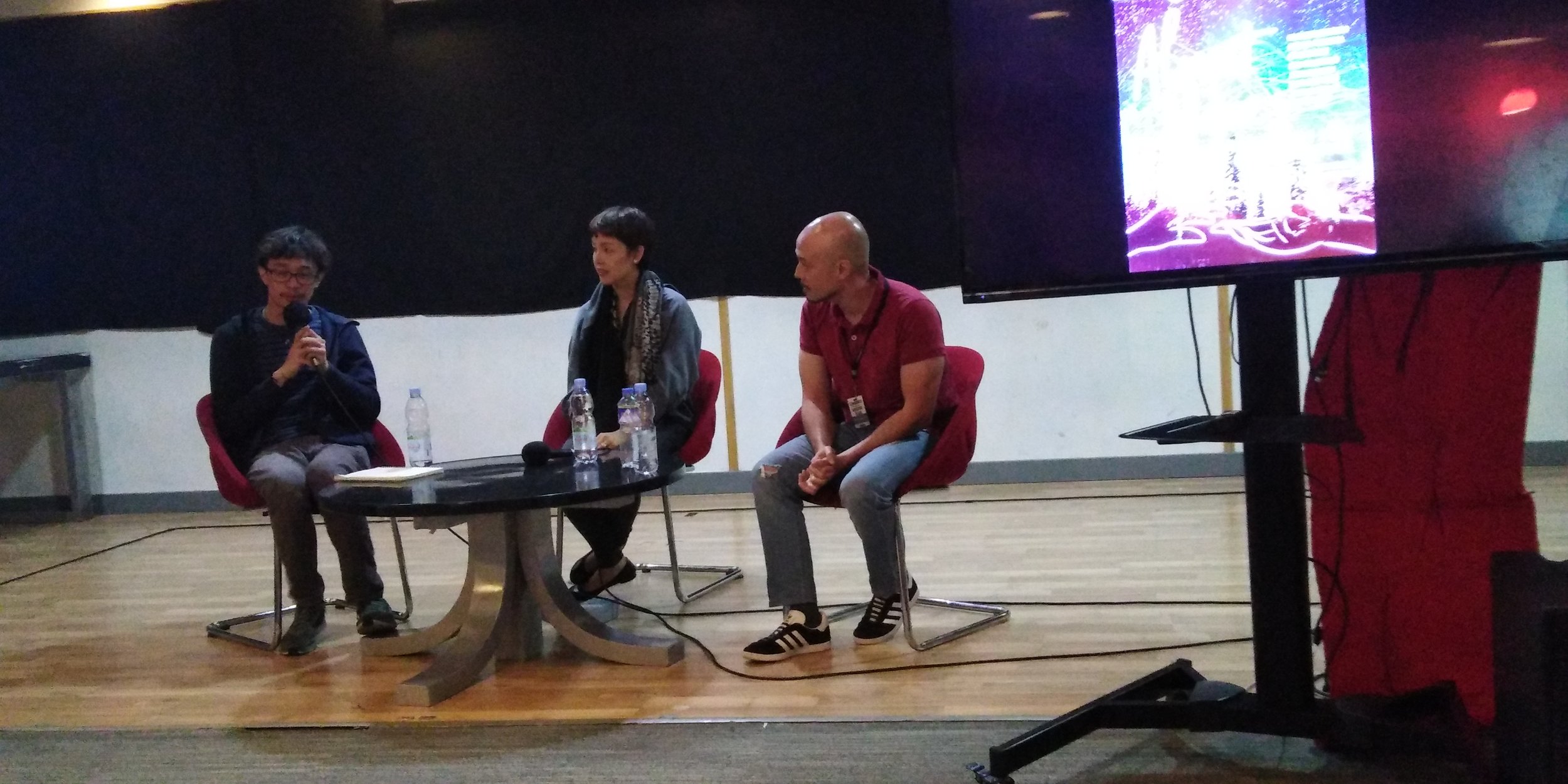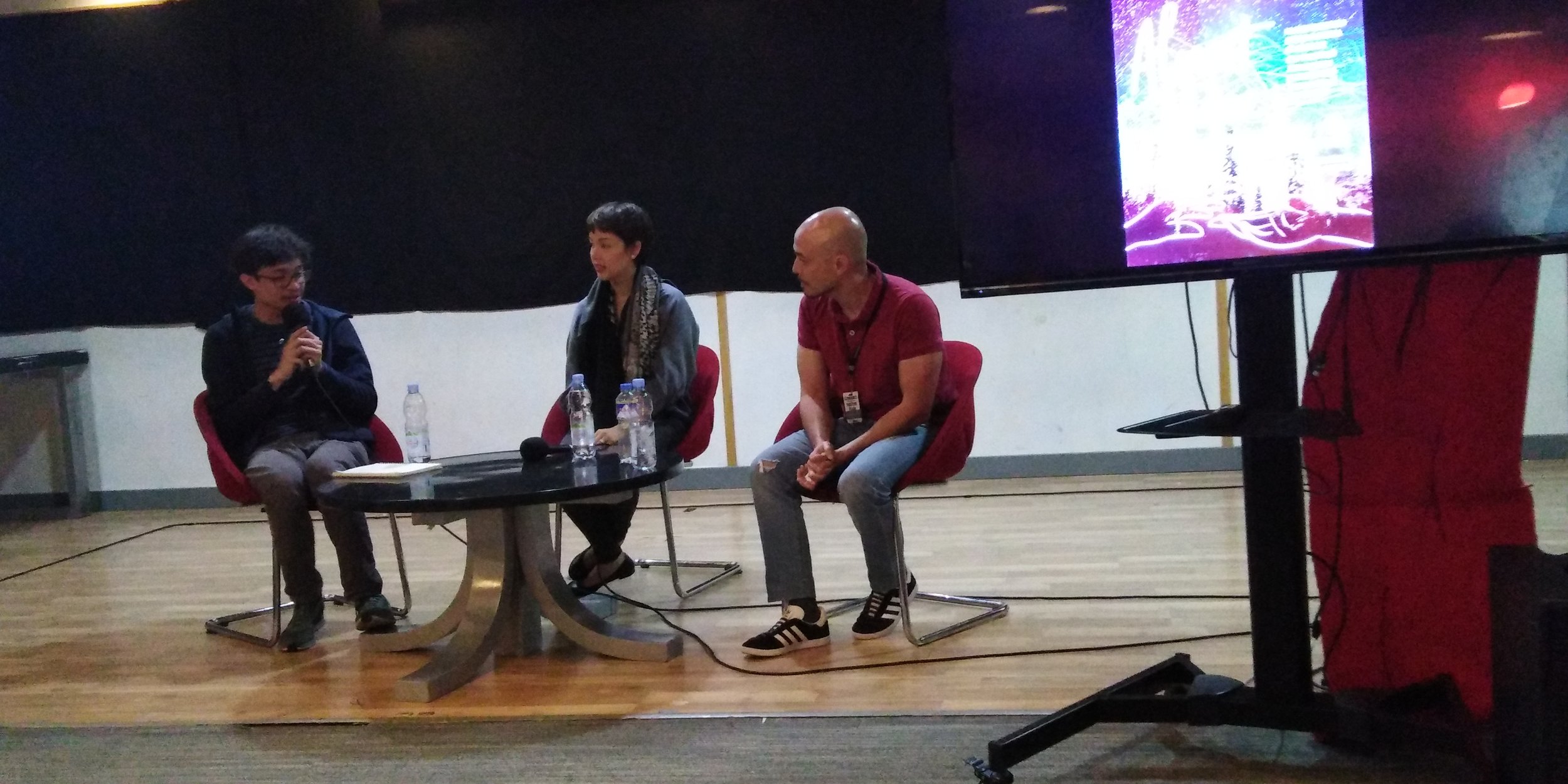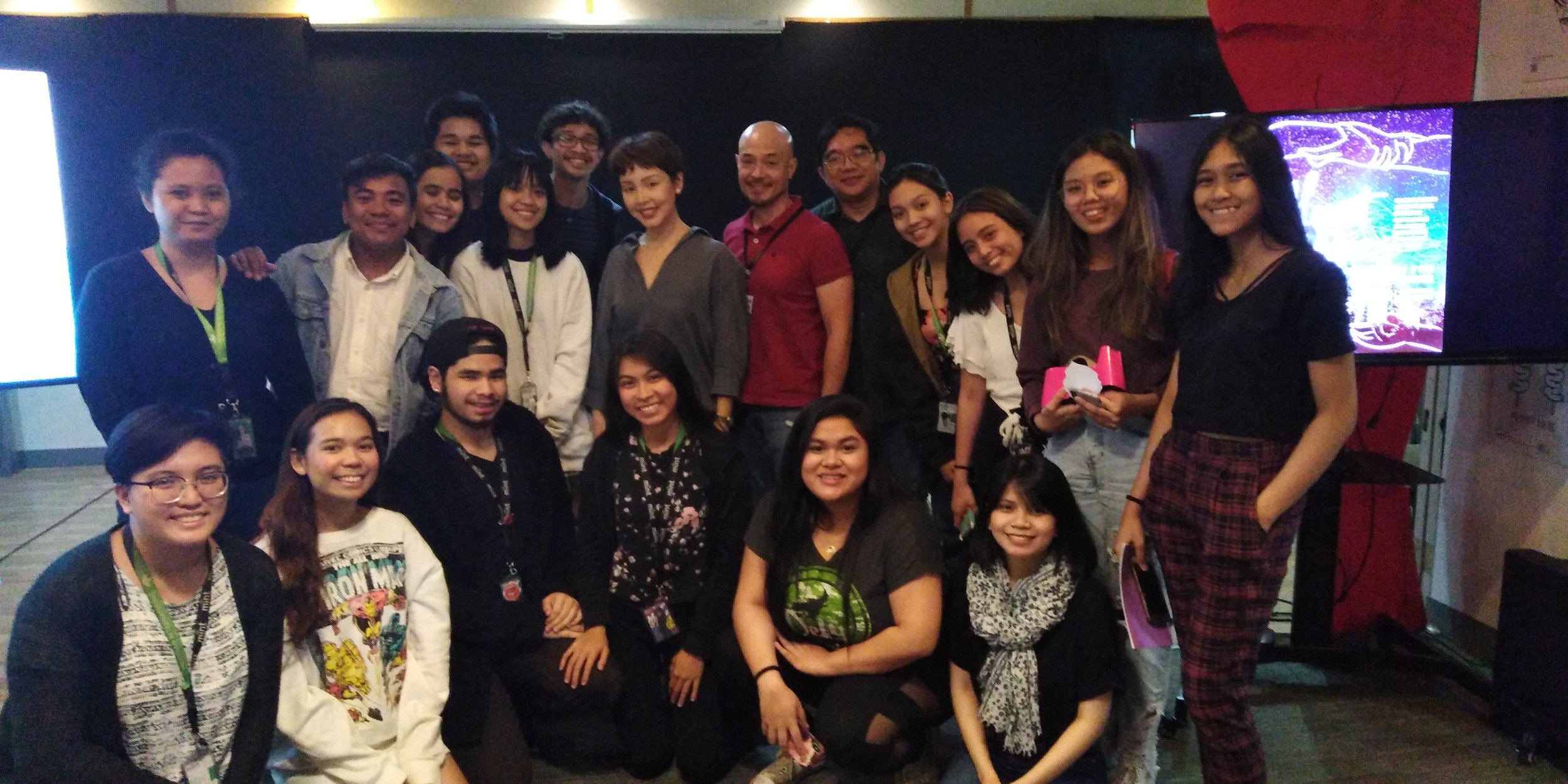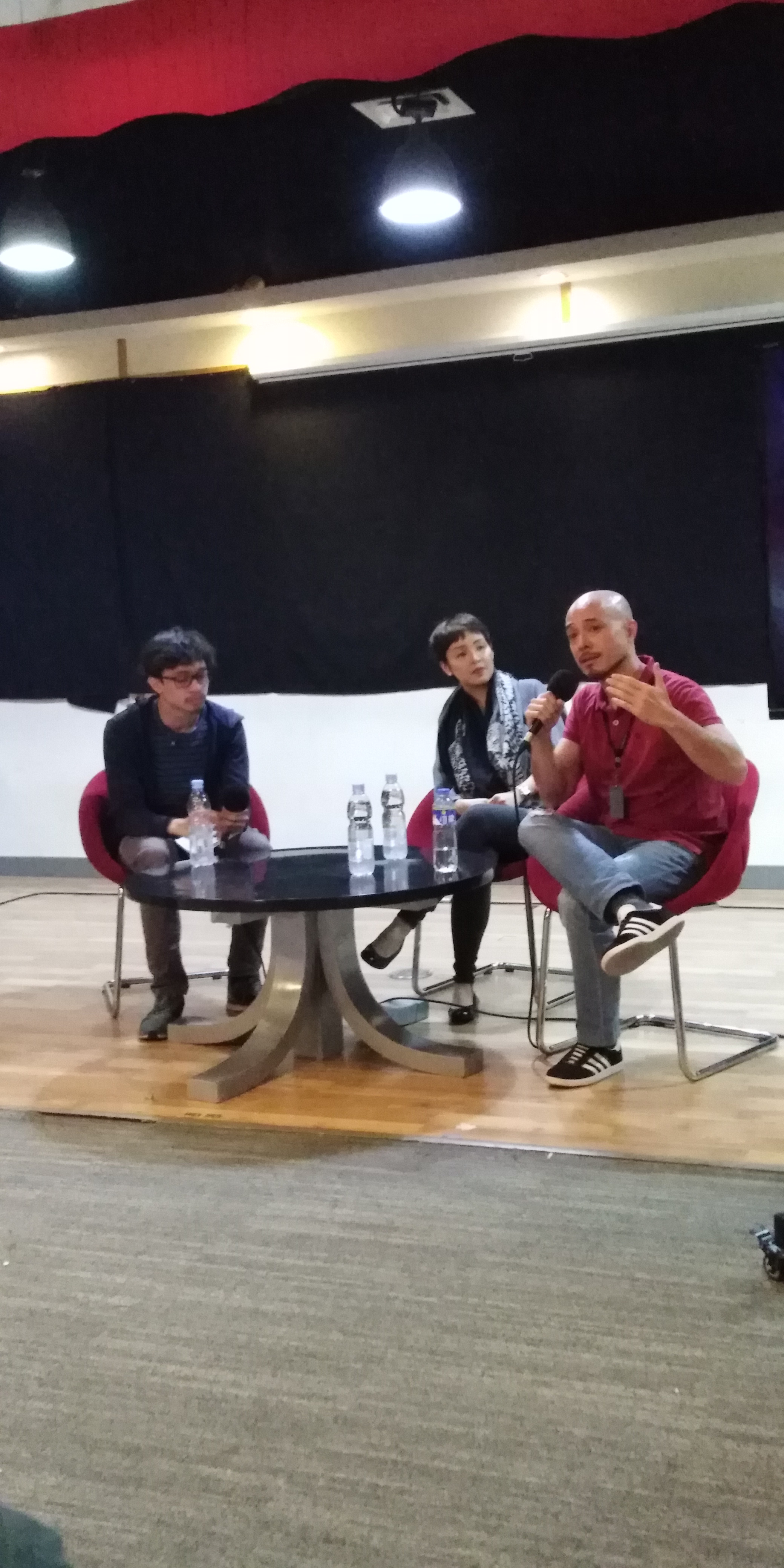by MINTeatro
If there is one thing that the theater industry and MINT share in common, it’s that belief in collaborative effort. This was highlighted by the two invited thespians—playwright Joel Trinidad and singer Cris Villonco—in a panel discussion with Theater Arts students and faculty last April 29.
The event was the first activity held by the school’s theater organization, MINTeatro, for their program’s weeklong celebration. It was called “Soliloquy”, or the theatrical equivalent of “thinking out loud.” Guided by a series of questions by the students about the art of the stage and the Philippine theater scene, both Trinidad and Villonco did their best to share their own thoughts respectively to the audience.
“All theater is uplifted in this country,” the playwright shared. “I firmly believe that the success of a theatrical production is the success of all.” He explained that if a theater company did great on show, people would be more inclined to watch more theater stages offered by other productions. He never saw it as a competition, but instead, he believes that “there’s enough audience for everybody.”
Trinidad saw the scenario as a tell-tale sign of growth of the theater community. “We don’t have our own theater culture just yet. We are still building it,” he said. “We’re still trying to figure it out. When we establish who we are, then, we’ll have more to share.”
He added that the local theater culture is still underway, and as future thespians, they can help it grow. “Support original shows. Write your own stuff. It’s the only way we’ll develop our own culture. We have to try,” he advised.
As for Villonco, she also deemed that the rising number of theater stages in the Philippines is more in line with collaboration than a competition. “At the end of the day, we all want each theater show to thrive,” she said.
For the singer, it’s always a welcome sight whenever a play graces our local stages. Whether it’s original Filipino material, or produced by foreign groups, they help in the revival for theater audiences.
Trinidad asked the students to learn how to listen. He said that there are three ways to listen effectively: as another person, as a performer, and as a junior.
“I think the best actors are the best human beings,” he said. Through listening, aspiring performers can learn the different nuances that people have, and this could help them portray their roles better. Next, he emphasized the need to always listen to their co-actors, and especially to their directors. “You listen, and then you react. You aren’t on stage just to say your lines and go. You pay attention to what your scene partner or your director is trying to coax out of you,” he said. “They aren’t there to make you look bad. They are there to boost you up and to guide you through.”
Lastly, he told them to always listen to their seniors. “You don’t know everything,” he said. “Listen to your seniors because you can get pointers on things you wish to improve about your performance. They can also give you sound advice because they already experienced what you’re just going through.”
As for Villonco, she shared that her early years as an actress wasn’t really as stellar as it appeared to be. She admitted to being quite stubborn before. “I was acting kind of bratty towards other people, and I learned from it the hard way,” she said. She advised the students then to always be level headed, and to respect whoever they work with. “Our [theater] community is small, and word gets around, so please, practice humility starting now,” she said.
“Practice being humble because you’ll never know when are you going to see those people you’ve worked with again, and in what status they’re going to be in,” she said. “You’ll never know what’s gonna happen in the future. All of the relationships you formed in this business would determine how you’ll thrive in the field.”
As a parting message, Trinidad emphasized, “It’s not about you. The show will go on, with or without you. Get over yourself.” W



